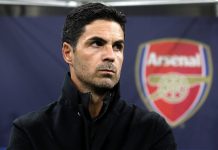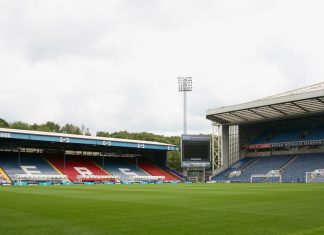The game showed up some of England’s limitations. Poor defensive positioning. Sluggish play going forward. A lack of cohesion. The usual.
The one significant lesson to be gleaned though is that the previous era of England stars seem to be at the end of their international careers. John Terry has made a career out of throwing himself at opponents, whilst Rio Ferdinand’s back threatens to flare up every time he steps onto the pitch. Frank Lampard too, the most reliable player of his generation, has seen better days and appears to be showing signs of age at last. Oh, yeah, we have a player called Steven Gerrard too. Wonder what happened to him?
For England, this is the ideal opportunity to break with the past and forge a new future. Most of the top international sides of now have created teams built around a nucleus of up and coming talent. Spain have made a team out of Xavi and Iniesta, surrounded by the likes of David Villa and Fernando Torres, David Silva and the like, and they have grown together into World and European champions. Now, Germany and France have a youthful squad which look like competing at the top for a while yet. Brazil and Argentina are renewing; Neymar, Ganso, Aguero and Di Maria show that a new era is here. Even Italy, who took a team which made England’s side look youthful to the last World Cup, have embraced the younger generation as they renew.
England though, remain stuck in the past. And it is not as though they don’t have the personnel. The next generation look more talented than the last, at least in terms of being able to pass and keep hold of the ball, England’s perpetual problem. Alongside Jack Wilshere in midfield, England’s latest star, can play alongside Jack Rodwell. Josh McEachran probably isn’t ready yet, but squad time could be a good idea for a player who has yet to break into the Chelsea team. Further forward, Adam Johnson has the flair and technique to be a far better player than Ashley Young, who is talented but retains fatal English flaws; an inability to see how the game will develop, tactical awareness, and composure. Johnson should play on the right, cutting in onto his favoured right foot, and swap wings with Theo Walcott, who will similarly be more effective cutting in from the left onto his stronger foot. Like Johnson, he prefers to go directly for goal than to go out wide, which is the role of the full back in modern football. Having wingers who cut inside is key.
Between them, England have players ready to play up front together for years to come. The tall, powerful but technically gifted Andy Carroll has an eye for goal, and potentially would be a perfect partner for Wayne Rooney, just behind him in the semi free role in which he thrives so well.
Oh yes, the defence. Joe Hart, as long as he keeps his calm, should have the goalkeeper position for a decade. In front of him England should start to blood the players who will guide them forward. Chris Smalling and Gary Cahill are the best two young English centre backs, and both are technically capable. In the full back positions, Martin Kelly and Kieran Gibbs have shown the ability to make them their own in the years to come.
The players of the last generation, Rio Ferdinand, John Terry, Steven Gerrard, Frank Lampard and Ashley Cole have all got a lot of experience to contribute, and should not be cast aside quickly. But to play more than one or two of these players in any given game would be a risk.
It is time to go with the talented, technical young players we have. The current generation’s second string, the likes of Darren Bent and Young, are not intelligent enough for international football. They are too predictable. The same goes for James Milner. They retain the old English flaws, of being one-dimensional and tactically inept. They have ability, sure, but there is a difference between the Premier League and international football, and none have demonstrated any evidence that they will bridge that gap. Time is not on their side. The talented next generation await, and must be given their chance.







